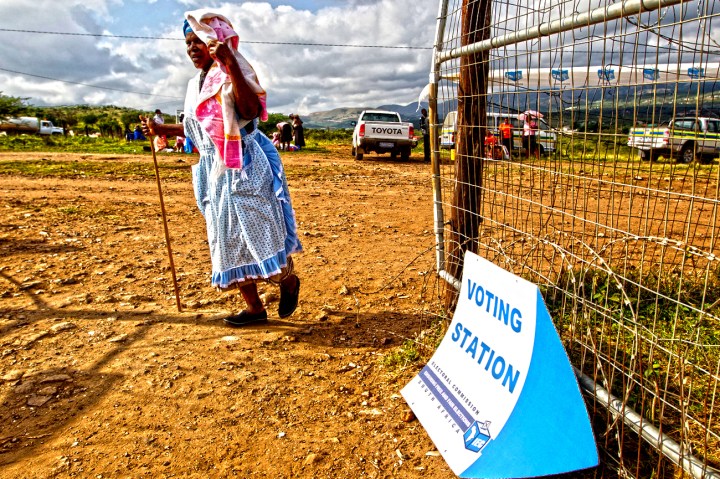Politics, South Africa
April by-elections: the DA leaves the ANC feeling blue

The DA entered the April by-elections with a good chance of losing up to three wards – one a very important strategic outpost. It did well to defend all three wards successfully and even gained a toehold in a couple of ANC strongholds. By PAUL BERKOWITZ.
Seven wards were contested in the April 2012 round of by-elections on Wednesday. Four of these wards were won by the ANC in the 2011 elections with between 86% and 97% of the vote. The other three wards were won by DA candidates who received between 41% and 56% of the vote. A neutral observer could say the ANC had everything to gain and the DA everything to lose going in to the elections. When the votes were tallied both parties managed to catch their breath, but it was the DA sighing with relief while the ANC sighed with frustration.
Of the three DA wards up for grabs, two of them were in Western Cape: Ward 45 in the City of Cape Town and Ward 11 in Theewaterskloof (Caledon). The latter ward was perhaps the most closely watched and controversial of all. It covers the town of Grabouw, the centre of bitter service delivery protests in recent weeks which pitted coloured and African residents against each other. In many ways it’s a microcosm of the struggle between the DA and the ANC in the province.
The DA governs in the municipality with a thin majority: it has 13 of the 25 council seats and can count on Cope for another seat. The ANC has nine seats, the National Independent Civic Organisation (Nico) one seat and the National People’s Party (NPP) the final seat.
In a worst-case scenario for the DA, the ANC would win Ward 11 from them and possibly cement a coalition with Nico and the NPP, leaving the DA with a razor-thin 13-12 majority in council. Add into the mix the fact that the incumbent DA councillor resigned her seat and contested the by-election under the ANC’s banner. Whether your sympathies lie with the DA or the ANC it’s becoming increasingly clear that Western Cape’s municipalities, where one or the other party has a narrow lead are ferocious, bare-knuckle contests. There will be more blood-soaked sawdust in the months to come.
The lead-up to the by-election in this ward was acrimonious with both sides campaigning fairly heavily and the DA accusing the ANC of interfering with its campaign plans.
The DA had won the ward with 56% of the vote in the 2011 elections and there would have been genuine worry in the blue camp that it could lose the ward and be one step closer to losing the municipality. It managed to scrape home with just less than 52% of the by-election votes, beating the ANC by only 103 votes. The fact that voter turnout actually rose from 51% in 2011 to 57% underscores how highly both parties prized this particular ward.
The DA comfortably defended Ward 45 in the City of Cape Town, increasing its share of the vote from 46% to 59%. This ward includes parts of Gugulethu and Manenberg and is important to the DA in terms of the bragging rights. Losing the ward would make little difference to the balance of power – the DA has an overwhelming majority in the metro – but it gives the party more legitimacy when it claims to have a mandate from working-class African and coloured voters. The counter-argument is that the DA won a bigger share of a smaller turn-out (38% of all eligible voters, compared with 62% in 2011), but that verges on the petty.
The third ward defended by the DA was Ward 7 of Sundays River Valley in Eastern Cape. This ward was split three ways in 2011, with the DA claiming 41%, the ANC 38% and an independent candidate the remaining 21%. This is a small ward with only about 2,500 registered voters and very few votes separating the winning DA candidate from the ANC runner-up. The by-election was a two-horse race with the DA increasing its share to 52% and the ANC claiming 48%.
The difference between the two candidates was only 46 votes.
The other sliver of good news for the DA is that it increased its share of the vote in Ward 28 of the City of Johannesburg. The ANC defended its seat here although its share of the vote fell from 86% to 78%. The DA doubled its share of the vote from 8% to 17%. This is a Soweto ward and the DA feels this is further evidence of its growing appeal to black voters. Time will tell, although the fact that the DA candidate garnered almost as many votes as her 2011 counterpart (567 compared with 626) is not insignificant in a ward where voter turnout dived from 54% to 24%.
In Ward 7 of Ngqushwa (Peddie) the ANC successfully retained the ward, although their share of the vote fell from 97% to 81%. This may have had something to do with the appeal of the other candidates; in the 2011 election the only challenge was from the PAC, while on Wednesday the ANC candidate had opposition from both Cope and an independent candidate.
The ANC retained the other two wards where it enjoyed incumbency (Ward 5 in Ndlambe/Port Alfred in Eastern Cape and Ward 9 in Albert Luthuli/Carolina in Mpumalanga) although it lost a smidgeon of support in the former where its share of the vote shrank from 88% to 83%. Its losses were the DA’s gains.
The ANC had its best chance in eight months of by-elections to take wards away from the DA and it will rue these missed opportunities; they don’t come along every month. In contrast, the successful defence of its wards will give a fillip to the DA, particularly the retention of the strategically important Grabouw.
Who knows what is going on behind the scenes with the Western Cape branch of the ANC? Whatever it is, it’s unlikely to be positive. After the internecine warfare of the Skwatsha versus Rasool days, it was hoped that Fransman would lead the party to better things in the province. The DA has raised the drawbridge and has the burning oil at the ready, and the ANC has failed to storm the castle this time. There are sighs all round, but for vastly different reasons. DM
Photo: A woman arrives at the polling station during the South African municipal elections. REUTERS/Rogan Ward.






 Become an Insider
Become an Insider